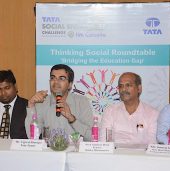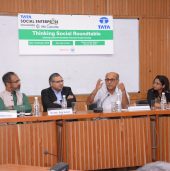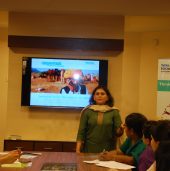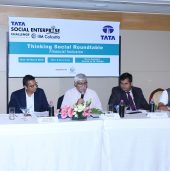26 March, 2016
2
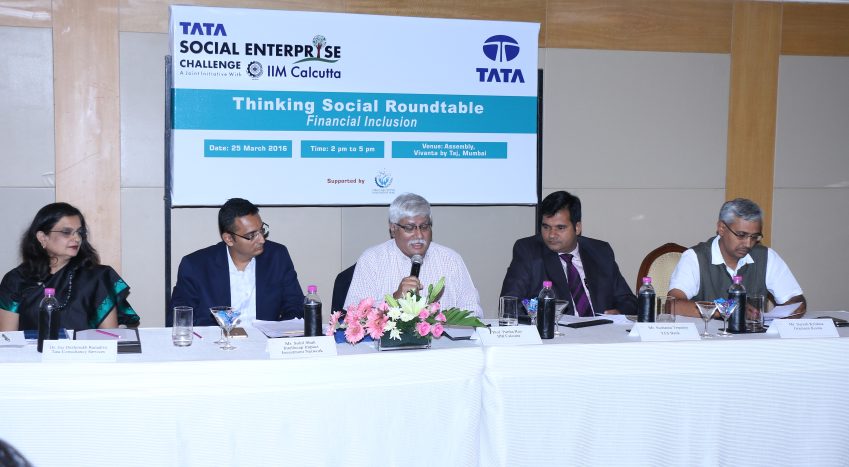
The fourth “Thinking Social” roundtable was organised under the aegis of Tata Social Enterprise Challenge 2015-16, by IIM Calcutta Innovation Park (IIMCIP) in association with the Tata group on the theme of “Financial Inclusion“. The object of this roundtable was to bring together key stakeholders in the financial services domain on a common platform and exchange ideas, highlight key issues and challenges, identify opportunities and draw out best practices.
The speakers for the day comprised venture capitalists, investors and domain experts who have rich experience in the Financial Services domain in India. The audience comprised of industry leaders, academia, entrepreneurs, consultancies and investors focused on the financial services sector.
The panel discussion was moderated by Prof. Partha Ray of IIM Calcutta. He set the context by illustrating the status of Financial Inclusion and highlighting the global initiatives that have been taken in this domain. He stated that only about 60% adults in the world have bank accounts. Prof. Ray concluded, “Financially inclusive countries tend to have a much higher growth rate.”
Prof. Ray requested the panelists to share their insights on the challenges and opportunities that exist in this domain.
Dr Joy Deshmukh-Ranadive, Global Head, Corporate Social Responsibility, Tata Consultancy Services, spoke about the problems of reaching the unbanked people in society. She explained that there are four distances in reaching the unbanked – Regional distances, Economic distances, Marginalization distances and Socio-psychological distances. She advised, “Social entrepreneurs need to examine not only the demand side but also the supply side in this domain.”
Suresh Krishna, Director, Grameen Koota pointed out that in India’s case, more than 60% of the total population has no access to banking facilities. From Grameen Koota’s experience he said, “Micro finance in the last two decades has taught us that the poor are more bankable and they maintain 100% on-time repayments.” He commented, “Financial Inclusion is very important for a peaceful society, so that everyone is gainfully and meaningfully included in it.”
Sohil Shah, Manager at Intellecap Impact Investment Network spoke about the role of technology and the current frenzy of the fintech start-ups. He said, “The financial services sector in India is in its early stage of disruptions. Consumer behavior is changing rapidly and that is where the fintech start-ups are going to play a crucial role in enabling financial inclusion.” He advised, “We need a holistic focus on increasing the financial literacy of all stakeholders, only then will we be able to increase the coverage and adoption of technology in this space.”
Sushanta Tripathy, Executive Vice President at Yes Bank spoke about how the RBI and the government of India has a strong focus on the Financial Inclusion domain and the activities they have undertaken to improve effectiveness in this domain. He updated the audience that, “In 2016, the banks need to prepare a district-wise financial plan for the next 3 years covering 637 districts on 77 defined parameters.”
In the Q&A round many significant issues were discussed and addressed by the audience and the panelists.
Apply Now
